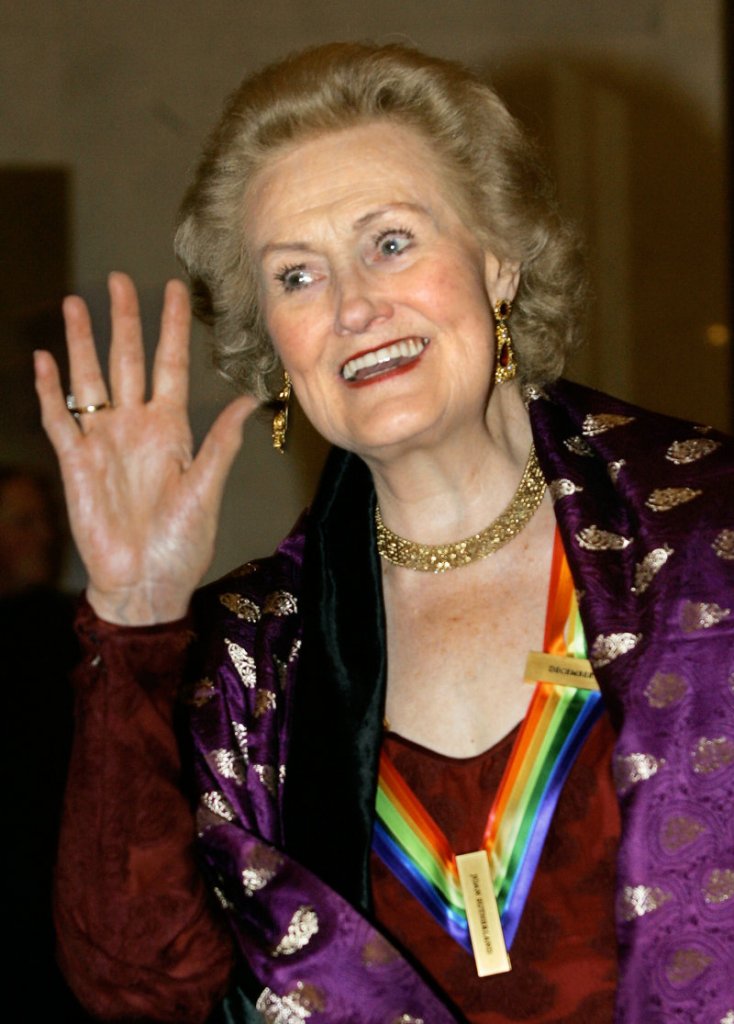GENEVA — Joan Sutherland’s radiant soprano stretched effortlessly over more than three octaves, with a purity of tone that made her one of the most celebrated opera singers of all time.
Acclaimed “La Stupenda,” – “the Stupendous One” – during a career spanning more than four decades, Sutherland was known in the opera world as an “anti-diva” diva whose warm vibrant sound and subtle coloring helped revitalize the school of early 19th-century Italian opera known as bel canto.
Sutherland died Sunday at her home near Geneva, after what her family described as a long illness. She was 83.
Superlatives were attached to Sutherland’s name from the moment she made her Italian debut in the title role of Handel’s “Alcina” in Venice in 1960.
Luciano Pavarotti proclaimed hers “the voice of the century,” while to English-speaking opera-goers she was “The Incomparable” for her mastery of coloratura – the ability to effortlessly sing difficult trills and rapid passages in high registers.
With a resplendent soprano capable of effortless flights from low G to high C and beyond, the Australian-born Sutherland could have evolved in many operatic directions. However, her 1954 marriage to conductor Richard Bonynge, a fellow Australian who became her coach, set her on her future path, taking on the major roles of early 19th-century Italian bel canto opera.
The bel canto repertory – literally “beautiful song” in Italian – had languished for decades outside Italy, until the legendary Maria Callas took on the roles in the early 1950s, demonstrating that operas like Donizetti’s “Lucia di Lammermoor” and Bellini’s “Norma” were not just showcases for coloratura agility but gripping dramatic works.
Italian director Franco Zeffirelli, who directed Sutherland in the 1959 Covent Garden performance of “Lucia di Lammermoor” that launched her international career, said he knew Sutherland’s voice rivaled that of Callas from the moment he heard it.
Sutherland soon was seen as the pre-eminent singer of Italian bel canto opera. If she couldn’t project the raw passion of Callas on stage, Sutherland’s voice was far steadier and she could maintain a perfect vocal line in some of opera’s most difficult roles, such as “Norma.”
Sutherland discovered her voice as a young child, crouching under the piano and copying her mother, Muriel Alston Sutherland.
Her father died of a heart attack on her sixth birthday, leaving the family with financial problems in the depths of the Depression. Sutherland left school at 16 to become a secretary but continued her vocal studies with her mother, finally winning a vocal scholarship.
Queen Elizabeth made Sutherland a dame of the British Empire in 1978.
Send questions/comments to the editors.



Success. Please wait for the page to reload. If the page does not reload within 5 seconds, please refresh the page.
Enter your email and password to access comments.
Hi, to comment on stories you must . This profile is in addition to your subscription and website login.
Already have a commenting profile? .
Invalid username/password.
Please check your email to confirm and complete your registration.
Only subscribers are eligible to post comments. Please subscribe or login first for digital access. Here’s why.
Use the form below to reset your password. When you've submitted your account email, we will send an email with a reset code.